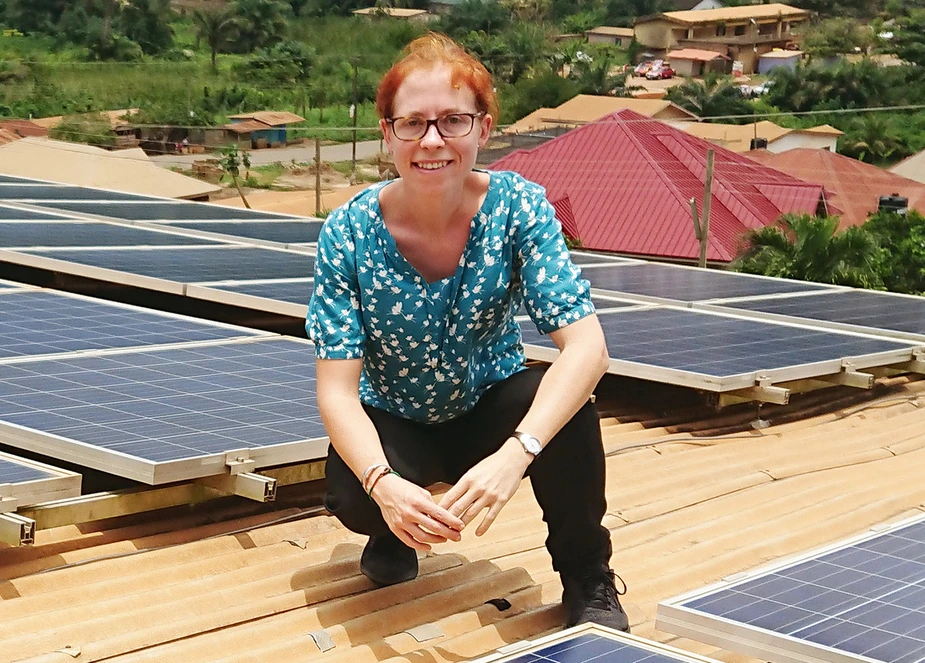The electricity strategist
Catherina Cader is working towards a clean energy in remote areas
She is frequently enamoured by images of the nightly earth from space. These bright points of light that lump together in certain places. Beside them, the vast zones of total darkness. Catherina Cader is fascinated by the world’s dark side. What do these places look like? What can one do to make them a little brighter?
At Reiner Lemoine Institute, where Cader has been working since 2012, this is precisely the subject she focuses on. She conducts research and advises governments on issues related to the electrification of remote rural areas in Africa and Asia. Before the coronavirus kept her from leaving Adlershof, like most others, she was on the road in far-away parts of the world every two months at least. Nepal, the Philippines, Ghana, Zambia, and, most often, Nigeria.
According to current figures from 2018, 790 million people, about ten percent of the world population, still live without electricity. This means no fridge, no mobile phone, no computer, and no access to the knowledge and information offered by the internet. “To me, electricity is a basic need,” says Cader. However, her work is not only about meeting a need. Above all, any solution must be sustainable and climate-friendly. Using sun, wind, and water, instead of diesel generators.
This is also the philosophy of the Reiner Lemoine Institute, whose late namesake is one of the pioneers of photovoltaics. It was founded in Schöneweide in 2010. The institute’s seventy employees on Rudower Chaussee started working on concepts for a global transition to clean energy in 2017. Rural electrification modelling, which Cader has been heading since early 2020, is one of the three areas of focus: “I’m one of the old hands by now.”
The geographer, who was trained in Marburg and Gießen, homes in on her target regions in several steps. She collects available geographical data and uses them do develop a technical-economic concept. Are there any large-scale and capable supply lines in close proximity that make a connection feasible? Are decentralised solutions easier? What are the wind conditions like? How much sunshine is there? Could wind power be an alternative? Cader’s tasks also include identifying needs by talking to local decision-makers.
The 34-year-old from the Rhön Mountains in East Hessia discovered geography, she says, because she found it “fascinating to understand how the world works as a whole.” The subject has given her a job that enables her – normally, at least – to live her passion for travelling: “I really appreciate to have had the chance to visit Nigeria.” The fact that this is not a country most people go on vacation makes it even more interesting. “How innovative and resourceful the people are, how they deal with things, how diverse the country is.” Experiencing these things was something that Cader found “very rewarding”.
By Winfried Dolderer for Adlershof Journal
